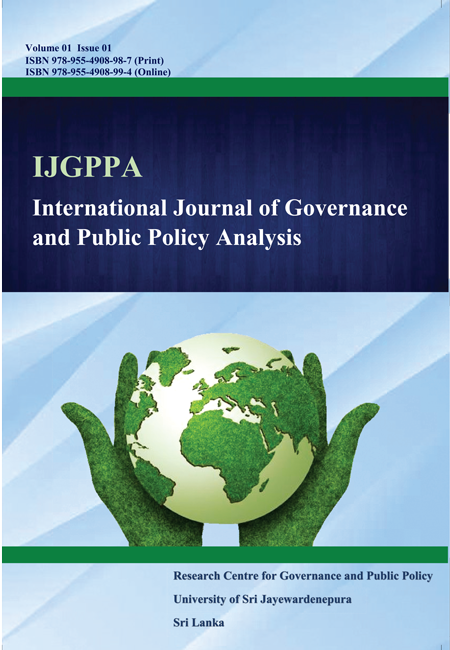Community Participation Cum Social Assessment of Clean India Program and Sustainable Development Goals: A Study Based on Amritsar District in India’s Punjab
Abstract
A massive campaign, ‘Clean India Program’ ‘Swachh Bharat Mission’ (SBM), a national flagship program of India’s federal government is underway since October 02, 2004 and it is to be accomplished by 2019. India is faced with an ever-increasing problem of waste generation in the country. The SBM mission launched by Government of India (GOI) is to solve the problem of waste management, make India a clean state by focusing upon sanitation, ensure hygiene all across the nation and achieve number 06 of the Sustainable Development Goals (SDGs). This paper carries out a social assessment of Clean India program (SBM) and identifies challenges of SBM implementation in Amritsar. It undertakes a stakeholder analysis to identify issues related to access and equity of cleaning services. The study found that SBM goals and objectives cannot be achieved without community participation. All residents had the knowledge about proper segregation of solid and liquid waste and their proper disposal. However, there is still the need for new methods to be found for their sustenance. It was found that villages, towns and cities have experienced significant improvement in facilities in sanitation, waste management, community living, and safe drinking water and also that the perception of the community on hygiene and health factors has a strong influence on the practice of hygienic living. It is recommended that 25 stakeholders must be involved by government agencies at all levels of the program implementation.
Keywords: Sustainable Development Goals, Swachh Bharat Mission (SBM), Clean India, Sanitation, Cleanliness, Community Participation

